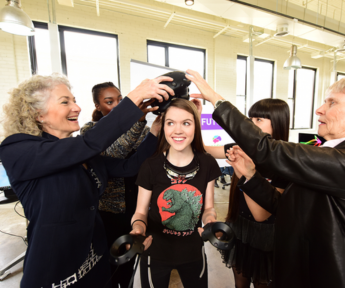Today, for the International Day of Women and Girls in Science, we’re spotlighting Dr. Bonnie Schmidt (FRSC), an influential leader, advocate, science communicator, and the Founder & President of Let’s Talk Science.
Bonnie has dedicated her career to breaking down barriers and making science engaging and accessible to all. By collaborating with educators and youth, she’s equipping the next generation with the skills to pursue STEM (Science, Technology, Engineering, and Math) careers, empowering them to help shape solutions for a brighter future.
With over 30 years in STEM education, Bonnie has made a lasting impact, reaching over 20 million youth across Canada and inspiring a diverse, scientifically informed society.
As a passionate advocate for increasing girls' representation in STEM, Bonnie is driving a more inclusive future, ensuring all youth have access to opportunities that foster curiosity and engagement in scientific discovery.
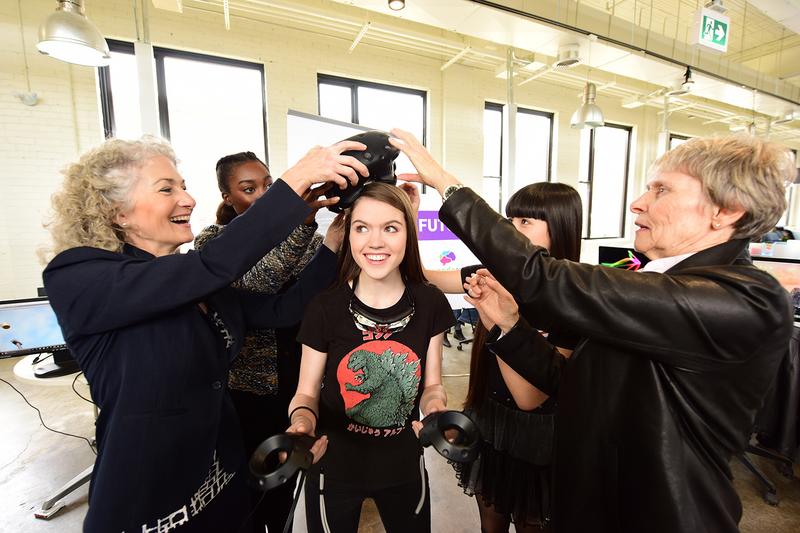
Q: Can you share a bit about yourself and your role at Let’s Talk Science?
A: I’m the president and founder of Let’s Talk Science; a national charitable organization that prepares youth for future careers and citizenship demands in a rapidly changing world. We engage youth and educators in STEM-based programming to ignite curiosity, build confidence, inspire career exploration and support critical skill development and scientific literacy.
I always enjoyed studying science and had some wonderful teachers. I had aspired to pursue dentistry but failed the hands-on component of the dental admissions test (i.e. chalk carving) – twice! That led me to graduate studies and a completely unexpected adventure.
I started Let’s Talk Science as a small outreach project during my PhD (Physiology) studies at Western University when an economic recession negatively impacted research funding and the scientific community became concerned that the public didn’t understand its importance. At that time, it never crossed my mind that I would go on to spend more than three decades in the field of STEM education.
Now, I report to our Board of Directors and am responsible for the overall strategy and work of Let’s Talk Science. We have an amazing team of dedicated staff, thousands of passionate volunteers and a network of inspiring teacher leaders who support our programming. A network of partners – including the RSC – ensure our programming is accurate, relevant, and available in all regions of Canada.
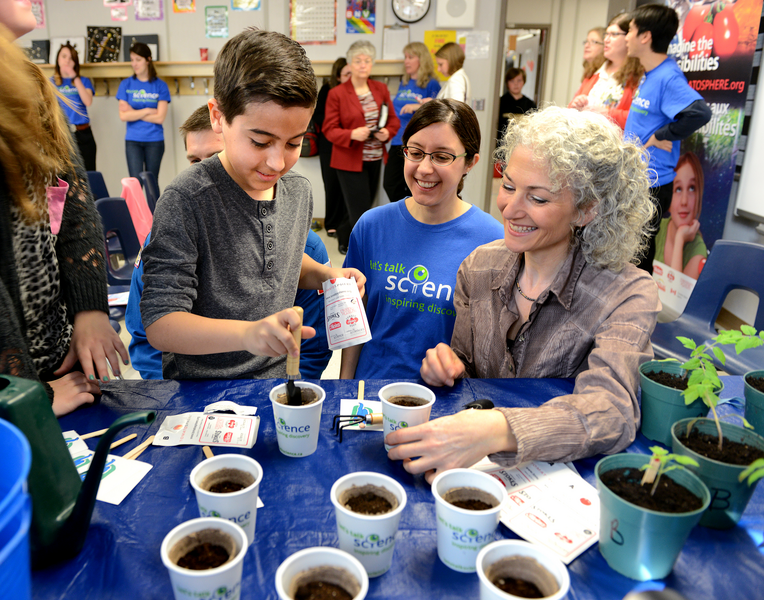
Q: Why is it vital to encourage women and girls to pursue STEM fields?
A: We must ensure that women participate in all STEM fields since they do represent half the population. Diverse voices and perspectives always lead to better decisions and solutions. Interestingly, within the broad category of STEM fields, long-standing trends continue. Women remain highly represented in health sciences and medicine and significantly under-represented in engineering, technology and math. Confidence and interest are key factors that influence school-aged girls to consider STEM studies. In the world of work, including academics, other barriers and challenges exist that result in women leaving. We need to work on both issues simultaneously – increasing the number of girls/women who see themselves in STEM and improving the environment, so they choose to stay.
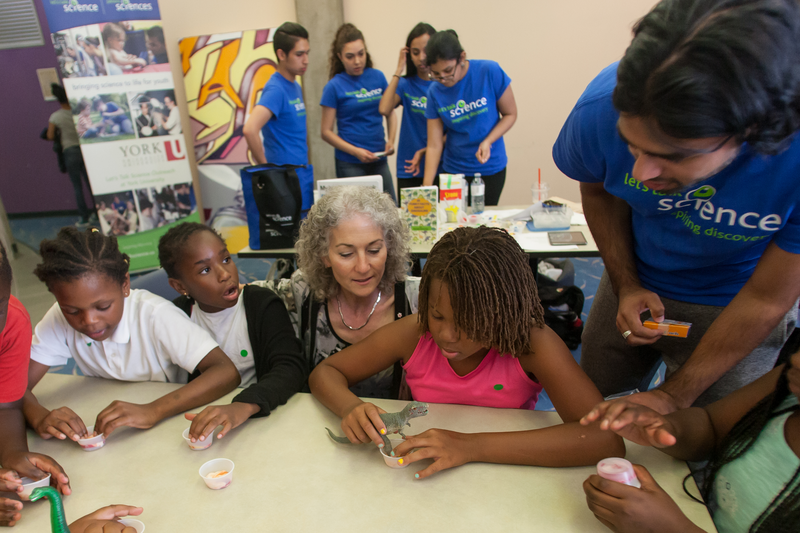
Q: In what ways does Let’s Talk Science support and empower women and girls in STEM?
A: Let’s Talk Science is attuned to the barriers that keep girls out of STEM and the factors that draw them in. As it turns out, when you design programs that tackle the barriers it’s good for everyone! Our programs foster curiosity, build confidence and help youth develop a positive science identity. Our female volunteers are amazing role models for everyone. Programming topics are influenced by youth to ensure relevancy. Our delivery strategies are informed by research that gives insights into how girls often behave in STEM class. For example, if hands-on materials are easily accessible in the centre of a table, boys are more likely to start tinkering and girls will wait to be invited or allowed. In many cases, this leads to girls taking on recording roles – only because the boys have already started with the materials. If that happens repeatedly, it can undermine girls’ confidence in ‘doing science’. Just understanding that behaviour means we can design the experience to level the playing field and ensure everyone gains experience that fosters confidence and interest.
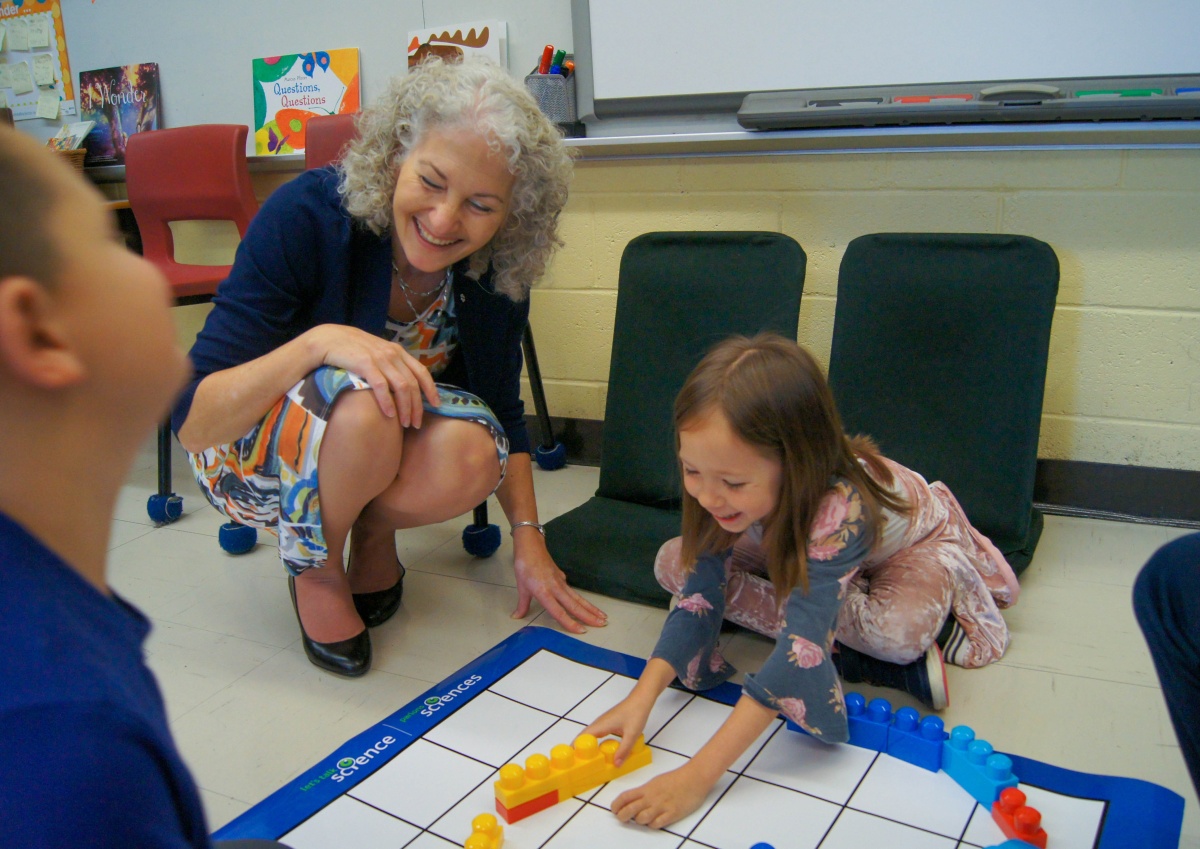
Q: Why do you believe the International Day of Women and Girls in Science is significant?
A: While it’s critical to strive towards achieving equity every day, the International Day offers a focal point to catalyze important conversations, make space for voices that might not otherwise be heard, celebrate achievements, and identify opportunities for improvement.
Q: What advice would you offer to young people aspiring to build a career in science?
A: A career in science used to mean only a few things – teaching, medicine, dentistry, research. Now, it means practically anything and everything! Science underpins nearly all aspects of our lives and will be critical to achieving sustainable development goals, tackling wicked problems and building a prosperous future. My advice is to stay curious, explore many areas, think about the problems you want to help solve. Lean into things you enjoy doing and be open to opportunity. I never planned nor expected the career in science that I’ve had, and it has been an amazing adventure!

About the RSC and Let’s Talk Science
In 2021, the RSC and Let's Talk Science formed a multi-year partnership, supported by the Canadian government, to engage over 600,000 youth in climate science education and action. The collaboration provides youth with access to cutting-edge research and hands-on activities, fostering skills for a sustainable future. The initiative aims to provide accessible, regionally relevant activities and resources, reaching youth from diverse backgrounds and supporting Canada’s Net Zero goals. Learn more below.
This interview is part of RSC Voices, where we highlight RSC members, their informed perspectives, and impactful work.
